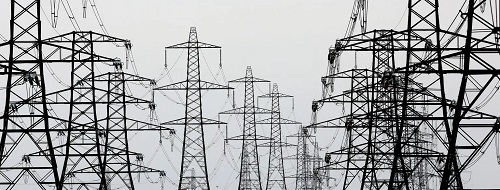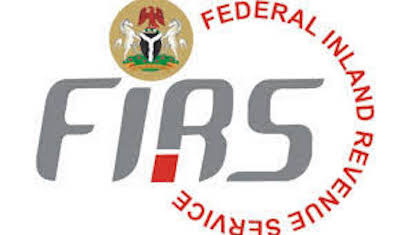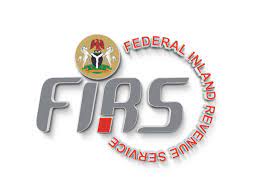BUSINESS
Oil Firms Lead FIRS’s Top-performing Taxpayers List in 2021

By Joseph Amah, Abuja
The Nigeria Liquified Petroleum Gas Company Ltd and the Nigeria National Petroleum Company (NNPC) led the list of 18 top performing taxpayers in Nigeria in 2021 released by the Federal Inland Revenue Service (FIRS).
While the Nigeria Liquified Petroleum Gas company was recognized as the Most Supportive Taxpayer, the NNPC was listed as the Highest Taxpayer.
Others on the list included Mobil Producing Limited, Star Deep Water Petroleum, MTN Nigeria Communications Plc, Shell Petroleum Development Company Limited, Chevron Nigeria Limited, Total E & P Nigeria Limited, Airtel Networks Limited, Nigeria Petroleum Development Company Limited, Nestle Nig.
Plc, Dangote Cement, Nigeria Breweries Plc, Total Upstream Nigeria Ltd, Indorama Eleme Petrochemicals Ltd, NIG Agip Oil Co. Ltd, British American Tobacco Marketing, Guaranty Trust Bank Plc, Stanbic IBC Bank Plc and Lafarge Africa Plc.Also on the list are, Northern Cables Processing and Manufacturing Limited (NOCACO) and Ikeja Electric Plc whom the FIRS recognised as the most improved in tax filing and VAT compliance respectively. Executive Chairman, FIRS, Muhammad Nami, while commenting on the list said he was grateful to the country’s taxpayers for their support, noting that without them the Service would not have been able to achieve the feat it recorded in 2021 where it surpassed its tax collection target for the year and crossed the N6trillion threshold for the first time.
According to him, “The FIRS is pleased to celebrate the top-performing taxpayers who contributed to our success in 2021. The Service surpassed its tax collection target in 2021, and in doing so, crossed the N6 trillion threshold for the first time.
“The feat recorded by the Service was made possible by the uncommon leadership of the President, Commander-in-Chief of the Armed Forces of Nigeria – Muhammadu Buhari, the active support of our supervisory Ministry, the backing of the National Assembly and its leadership as well as the cooperation of all other stakeholders in the tax area.”
He said the Service was particularly grateful to the top tax payers whom he said defied the very harsh global economic conditions imposed by the lingering COVID-19 pandemic to produce a heroic performance in tax payment, compliance and support.
“The combined efforts of all taxpayers made it possible for the Service to achieve the tax revenue collection of 2021 which provided our governments with necessary funds to meet their social contracts with the citizens,” the FIRS boss noted.
The revenue authority urged taxpayers to join hands with the FIRS to make taxation the pivot of the nation’s development and economic growth.
BUSINESS
Power Outage Killing Our Businesses, Enugu Residents Cry Out

Residents of Ologo, Coal Camp and Uwani areas of Enugu metropolis have decried persistent power outage in the area spanning over one week, and appealed to relevant authorities to come to their aid.
A cross section of the residents, who spoke in Enugu on Tuesday called for Gov.
Peter Mbah’s intervention to restore power supply to the area.They said that lack of power supply was affecting their businesses, households and means of livelihood.
Recall that the MainPower Electricity Distribution Company Limited (MPECL) on Aug. 4, issued a statement blaming the Enugu Electricity Distribution Company (EEDC), for the development.
According to the company, the reduction followed the decision by the Enugu Electricity Regulatory Commission (EERC) to slash electricity tariff for Band A from N209 per kWh to N160 per kWh.
Since the directive came into effect on Aug. 1, electricity consumers on Band B to E have been thrown into darkness in parts of the city, crippling many economic activities.
A welder at the Mechanic Shop in Coal Camp, Obum Chijioke, said that he had spent a lot of money on fuel to do his job adding that he went home empty handed.
According to him, it has not been easy for us in the past one week as we spend the little we make on fuel.
Chijioke appealed to the relevant authorities to look into the problem urgently and restore the energy.
A cleric in a church on Zik Avenue, who spoke anonymously, said that the church had been using diesel for its activities including services and it was taking a toll on them.
“We spend between N25,000 and N30,000 on diesel daily for our activities and it is not easy at all,”.
A retail shop operator, Chika Alejim, decried the situation, saying that it had affected her business.
She said she had not been able to chill her drinks and sachet water, which were the mainstay of her business.
According to her, the business was no longer booming unlike before, thereby, affecting her profits and incurring more expenses.
“I buy fuel of N20, 000 daily; I spend N10, 000 on fuel in the morning and another N10,000 at night and all these expenses eat deep into my profits.
“Also, the ice fish and meat, which I sell to support the provision store, got spoiled due to power outage,” she said.
In the same vein, Charles Ako, a business centre operator said that he no longer cope with the huge cost of keeping the centre functional.
“I have stopped those undergoing computer training due to absence of power supply.
“I use little fuel. I have to do photocopy and printing when a customer comes.
“I don’t know when the power issue will be sorted out; I am appealing to those concerned to help Enugu people because we are suffering,” he said.
Also speaking, a housewife, Ukamaka Ugwu described the effect of lack of power supply as serious, saying that it had pushed up the family’s daily expenses.
She said she had stopped cooking in large quantities because there was no electricity to preserve the food.
Meanwhile EERC, in a statement on Aug. 10, said steps were being taken to resolve the power shortage.
The commission revealed that it had met with both EEDC and Main Power in a bid to restore normalcy.
BUSINESS
Nigeria Requires $120bn to Build Federal Roads – TUC

The Trade Union Congress of Nigeria has stated that the country would need an estimated $120bn to construct its federal road network, a sum that is roughly four times the size of its annual budget.
The union described the gap between Nigeria’s infrastructure needs and available resources as alarming, accusing much of the political leadership of lacking the vision and innovation required to revive the economy.
Speaking at the second edition of the TUC South-West Summit 2025 in Lagos, TUC President-General Festus Osifo cited a 2013 study that put the cost of constructing all federal roads at $120bn.
He noted that Nigeria’s current budget, which stands between $30bn and $35bn, is already heavily committed to salaries, education, healthcare, defence, and other essential services.
“If constructing all our roads will cost $120bn, and the size of our budget is $30bn, it means we need four times our budget just to fix roads, without paying salaries, funding education, or providing healthcare,” Osifo told delegates. “This is why we must grow our revenue base and stop pretending that oil alone can sustain this country.”
He criticised successive governments for failing to diversify the economy in any meaningful way despite Nigeria’s vast opportunities in agriculture and solid minerals. According to him, the chronic underfunding of infrastructure is not only due to low revenue generation but also stems from weak political leadership.
“Most of our political heads, from governors to local government chairmen, are relatively lazy. In some rural councils, you will not see the chairman until allocations arrive,” Osifo said. “We cannot continue with leaders who wait for monthly allocations before doing anything. They must think beyond the obvious and work for the people.”
He contrasted Nigeria’s performance with that of countries with smaller landmasses and fewer natural resources, which earn more from agriculture than Nigeria currently generates from oil exports. “We have arable land, we have human capital, yet we leave them idle while relying on a single commodity that the world is steadily moving away from,” he added.
Representing Lagos State Governor Babajide Sanwo-Olu, Commissioner for Establishments and Training Afolabi Ayantayo acknowledged the validity of the TUC President’s concerns. He called for stronger partnerships between government and organised labour, noting that Nigeria’s diplomatic missions abroad were underutilised and often failed to secure export markets for local produce and manufactured goods.
“Collaboration is key. We must invest in skills development, fair wages, and policies that address inflation and the rising cost of living,” Mr Ayantayo said. “In Lagos, we are committed to workers’ welfare and timely salary payments, but we also recognise the need to push productivity and innovation.”
The summit, themed Collaborate to Transform: Building Capacity for Regional Excellence and Workers’ Welfare, gathered labour leaders, government representatives, and private sector experts to discuss strategies for driving economic growth in the South-West. Panel sessions explored topics such as agriculture, leadership, communication, emotional intelligence, and the role of artificial intelligence in the workplace.
In his closing remarks, Osifo reiterated that unless Nigeria’s leaders adopt more proactive and resourceful approaches, the country will remain trapped in a cycle of inadequate budgets, deteriorating infrastructure, and wasted opportunities.
“The $120bn needed to fix our roads is not just a number but a reflection of how far behind we are. Only bold and innovative leadership can bridge that gap,” he concluded.
| ReplyReply allForwardAdd reaction |
BUSINESS
Nigeria Customs Set to Review License Rates of Agents

By Tony Obiechina Abuja
The Nigeria Customs Service (NCS) said it has commenced consultations with stakeholders on planned review of licensing renewal fees for Licensed Customs Agents.
This was disclosed during a high-level stakeholders’ engagement with executives of the Association of Nigerian Licensed Customs Agents (ANLCA), the National Association of Government Approved Freight Forwarders (NAGAFF), the Africa Association of Professional Freight Forwarders and Logistics of Nigeria (APFFLON), and Customs Consultative Committee (CCC), held at the NCS Headquarters recently in Abuja.
In a statement by NCS spokesman, Abdullahi Maiwada on Sunday, the meeting marked the first in a series of consultation sessions to be held with industry players ahead of the planned implementation.
The licensing of Customs Agents remains a critical component in safeguarding the integrity of Nigeria’s cargo clearance process. The planned review is intended to reflect prevailing economic realities, including the value of exchange rates, address operational demands, and ensure that only agents who meet the Service’s compliance, competence, and integrity requirements continue to operate within the system.
The initiative is aimed at promoting accountability, streamlining processes, and enhancing the quality of service delivery in the sector.
The Service emphasised that the review forms part of broader modernisation efforts targeted at repositioning the NCS to meet the evolving needs of international trade and border management. It is expected to create a more transparent, predictable, and efficient licensing regime that will ultimately benefit legitimate operators and the trading public.
The new licensing structure is scheduled to take effect from January 2026, following the conclusion of stakeholder consultations.
Furthermore, Licensed Customs Agents who comply with the new licensing structure will enjoy access to premium facilitation measures, including faster processing timelines, improved engagement channels with Customs officers, and enhanced integration with the Service’s upgraded digital platforms.
This compliance-driven incentive is designed to encourage adherence to professional standards while discouraging sharp practices.
The NCS reassures stakeholders of its commitment to an inclusive process and notes that feedback from industry associations, individual operators, and relevant government agencies will be carefully considered before the finalisation and implementation of the review. The Service also reiterates its dedication to fairness, transparency, and the promotion of a secure, competitive, and efficient trading environment in Nigeria.


























